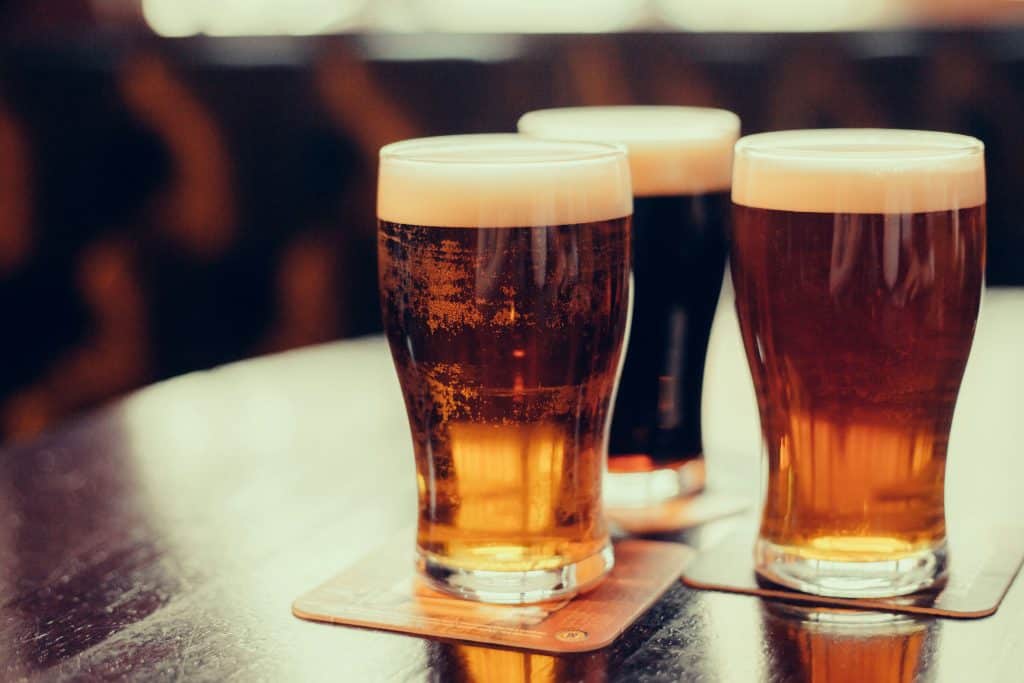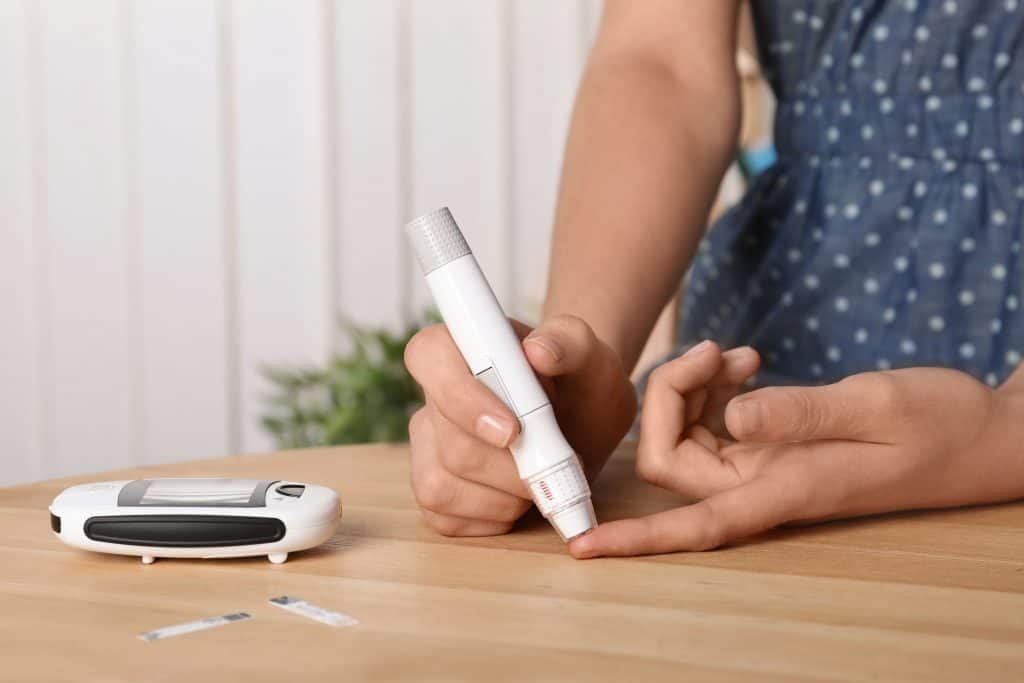Alcohol and Hypoglycemia – Causes, Prevention, A Guide
Posted by Prescription Hope - See Editorial Guidelines (Last Updated On: Tue Apr 25 2023)
If you have diabetes and also enjoy a drink, then you need to understand the correlation between alcohol and hypoglycemia. Most of us know about the long-term effects of alcohol on the liver, but what about the short-term? And how does this affect one’s blood sugar levels?
In this article, we will discuss why alcohol causes hypoglycemia, why it’s dangerous, and ways you can prevent it from happening. First, let’s get started with a quick takeaway answer.

Alcohol and Hypoglycemia: Consumption of alcohol, especially binge drinking, can impair the liver’s ability to release glucose when the body needs it. This is particularly impactful on those that take insulin to treat their diabetes condition. Their blood sugar levels may drop below normal levels (hypoglycemia), and without their liver responding correctly, it can be very dangerous.
With this quick explanation in mind, lets dive into the details.
Why Alcohol Causes Hypoglycemia
Though having a drink occasionally can relieve us of stress and can provide us with some social interaction, it can be detrimental to our health. Binge drinking is especially harmful to one’s health and will potentially lead to severe hypoglycemia in those with diabetes.
The reason has to do with the role of the liver. So, before describing why alcohol can cause hypoglycemia, let’s cover the role the liver has for regulating blood sugar levels.
The Liver’s Impact on Blood Sugar
The liver has a vital role in helping regulate blood sugar levels. This organ stores glycogen, which is turned to glucose and released into the bloodstream when the body senses a decrease in blood sugar levels. This process is called glycogenolysis.
The liver can also produce needed glucose through amino acids and fat byproducts. Keep this in mind as we get into how alcohol impacts the liver.
Alcohol’s Impact on the Liver
When a person consumes alcohol, it goes right into your bloodstream. The body treats alcohol like a toxin, and your liver starts to pull it from the bloodstream to break it down so that it can be expelled from the body.
Since alcohol is treated as a toxin, this process takes priority over everything else for the liver. Therefore, once alcohol is consumed, the liver drops everything it’s doing and gets to work on breaking down the alcohol.
So, when you are experiencing low blood sugar after drinking alcohol, your liver will not secrete glucose effectively.
On top of this, diabetes patients may inject insulin just before having a drink. This because many alcoholic drinks contain large amounts of sugar and carbohydrates. So, there may be an initial spike in blood sugar followed by a dramatic drop, leading to severe hypoglycemia.
The Dangers of Alcohol Induced Hypoglycemia
Alcohol and hypoglycemia can have severe consequences, both long-term and short-term. Some of the long-term consequences can include damage to the liver, kidneys, and adrenal glands. Having diabetes also puts a person at a higher risk of having problems with these organs too.
The short-term dangers are often immediately threatening. The most immediately threatening danger is having severe hypoglycemia, causing unconsciousness or seizures.
This is especially a risk of one goes to sleep after drinking and does not check their blood sugar or have anything to eat. Not having food in one’s system and with their cortisol levels lowest while sleeping, it sets them up to have hypoglycemia.
The biggest worry in this scenario is the person not waking up and noticing symptoms of low blood sugar. If low blood sugar is left untreated, it can be life-threatening.
Preventing Hypoglycemia After Drinking

When it comes to alcohol and hypoglycemia, the individual must do everything they can to mitigate their risk of having severe blood sugar fluctuations. There are a few different ways to prevent one’s blood sugar from dropping too low after drinking.
One way is to avoid binge drinking. Binge drinking is terrible for your health and your blood sugars. If you are going out for the night with friends, try to span out the drinks you have. Drink water between every alcoholic beverage you have. This will keep you hydrated and aide in preventing a large spike in blood sugar, which can result in over-correcting with insulin.
Check your blood sugar levels often when you choose to drink. Having a continuous glucose monitor (CGM) will be the best way to do this. However, if you do not have a CGM, make sure you have enough test strips with you and check often. This can help you catch a hypoglycemic event before it becomes severe and allows for easy correction.
Another way to prevent a potential low blood sugar event when drinking is to make sure you have food in your system beforehand. Eat a healthy meal consisting of protein, fats, and carbohydrates. This will help keep your blood sugar stables throughout the night.
It is important that the people you are with know about your situation. If an emergency happens, the people you are with need to know what is going on and how to handle the situation. Leaving those close to you in the dark concerning your diabetes condition prevents them from being able to help you appropriately if you need it.
When you go out drinking, it is essential that you keep glucose tablets or gels with you. A person with diabetes should keep rapid-acting carbohydrates on them or near them at all times.
Alcohol and Hypoglycemia Unawareness
Hypoglycemia unawareness is defined as a person not feeling or experiencing the symptoms of low blood sugar. When alcohol is involved, it can impair a person’s ability to sense symptoms of hypoglycemia. A couple of factors may cause impaired awareness.
The first factor is the effect that alcohol has on one’s cognitive function. This effect may cause one to overlook the symptoms of low blood sugar.
Another factor that can cause someone not to notice the symptoms is because the symptoms may be confused with the effects of alcohol. The tipsy or drunken feeling caused by alcohol consumption can often feel similar to that of low blood sugar. So, individuals may ignore the symptoms, thinking that it is just the effects of alcohol.
Conclusion
We hope this has given you a better understanding of how alcohol and hypoglycemia are correlated. It is important to note that we are in no way encouraging patients to consume alcohol. Alcohol affects everyone differently, and patients should consult their doctor about drinking with the medications they are on and how it will affect their condition.
If you are paying too much for the medication you have been prescribed, then Prescription Hope can help save you money. We work directly with pharmaceutical manufacturers to provide patients with the medicines they need at the set, affordable cost of $60.00 a month through Prescription Hope’s medication access service . Enroll with us and start saving money.
ENROLL



